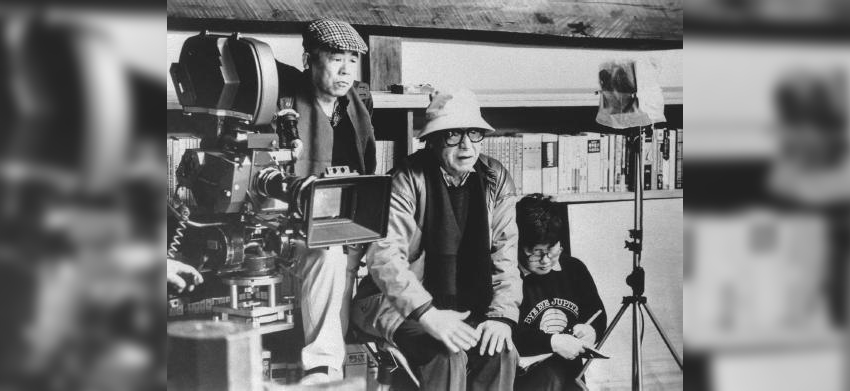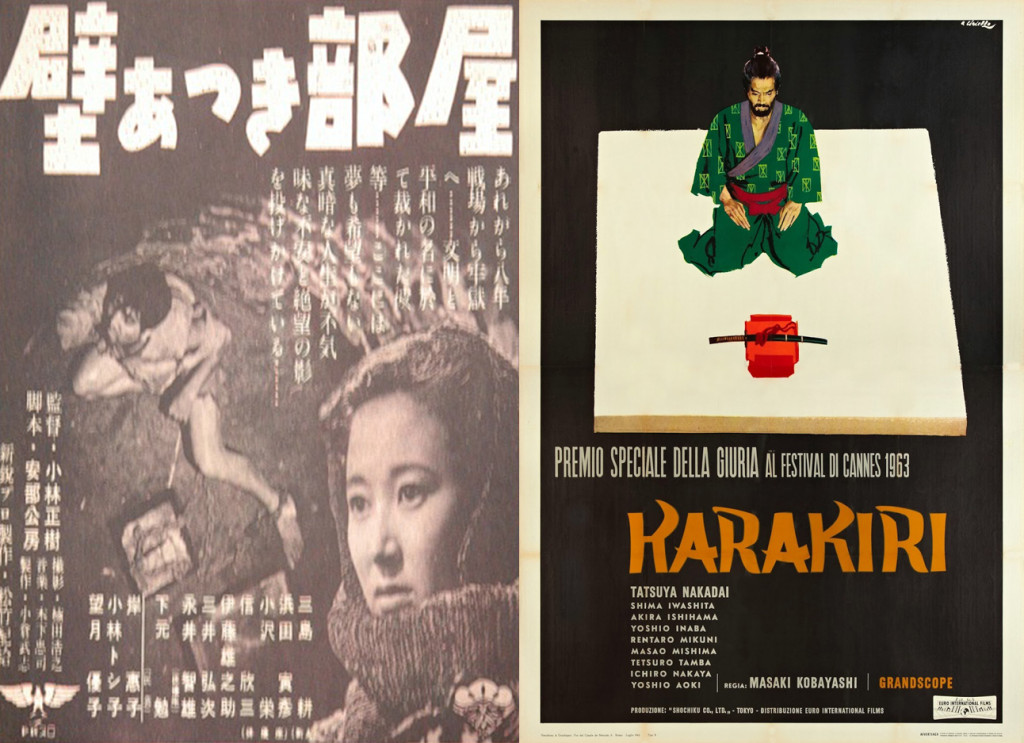
Want to become an instant expert in our filmmaker of the month without committing yourself to an entire filmography? Then you need the Hell Is For Hyphenates Cheat Sheet: a double that will bring you totally up to speed before our next episode lands…

THE THICK-WALLED ROOM (1956) and HARAKIRI (1962)
If you want to know what Kobayashi is all about, you can't go wrong with this double. The Thick-Walled Room is a story about imprisoned former soldiers in post-war Japan, jailed for crimes against humanity. It was ready for release in 1953, but was deemed too inflammatory, and sat on the shelf for three years. Inflammatory is an understatement. Kobayashi and writer Kôbô Abe don't hold back in their criticisms of Japan and the Allied Forces, and the crimes that take place when desperate men are in combat. But it's the emotional journey of the central characters that keeps us engaged, and Kobayashi's incredible use of metaphor and surrealism. Then, follow it up with Harakiri, the tale of a samurai who appears at the estate of a large clan requesting the opportunity to commit seppuku in their courtyard. But the country is full of ronin who have made similar requests as a bluff in order to extract money or employment from sympathetic clans, and this group isn't having it: if he wants to kill himself, they're going to make sure he follows through. What follows is an extraordinarily tense battle of wits between the ragged samurai warrior (an all-time performance by Kobayashi's most frequent collaborator Tatsuya Nakadei) and the clan's senior counsellor (an amazing and memorable turn from RentarŠMukini). Our guest Mark Protosevich described Harakiri as one of his top ten favourite films of all time, and you won't be hard-pressed to see why.
Substitutions: If you can't get or have already seen The Thick-Walled Room, try Kwaidan (1964), Kobayashi's award-winning ghost story anthology that Roger Ebert described as “among the most beautiful films I've ever seenâ€. If you can't get or have already seen Harakiri, swap in Samurai Rebellion (1967), a film about the futility of honour in feudal Japan, and the only time Kobayashi worked with the great Toshiro Mifune.
The Hidden Gem: Want to watch something a little off the beaten track? Well, we're not sure if The Human Condition necessarily qualifies. In The Story of Cinema, British film critic David Shipman called it “unquestionably the greatest film ever madeâ€, and in the New York Times, AO Scott said that the film “can clarify and enrich your understanding of what it is to be aliveâ€. So it's hardly obscure, but we put it here because it has a total running time of about ten hours, and thus earns its place as a wildcard entry. (Although it's considered a single work, it is most commonly released as three distinct films, with an intermission breaking them into manageable 90 minute chapters.) The Human Condition is the story of Kaji, a pacifist who must deal with Japan’s oppressive war machine at the break-out of World War Two. The events closely echo Kobayashi's own story, both in terms of his stringent beliefs and his experiences in the war. This one is absolutely worth your time, and given its ten hour length, we don’t say that lightly.
The next episode of Hell Is For Hyphenates, featuring Mark Protosevich talking Masaki Kobayashi, will be released on the morning of May 31 (AEST).



